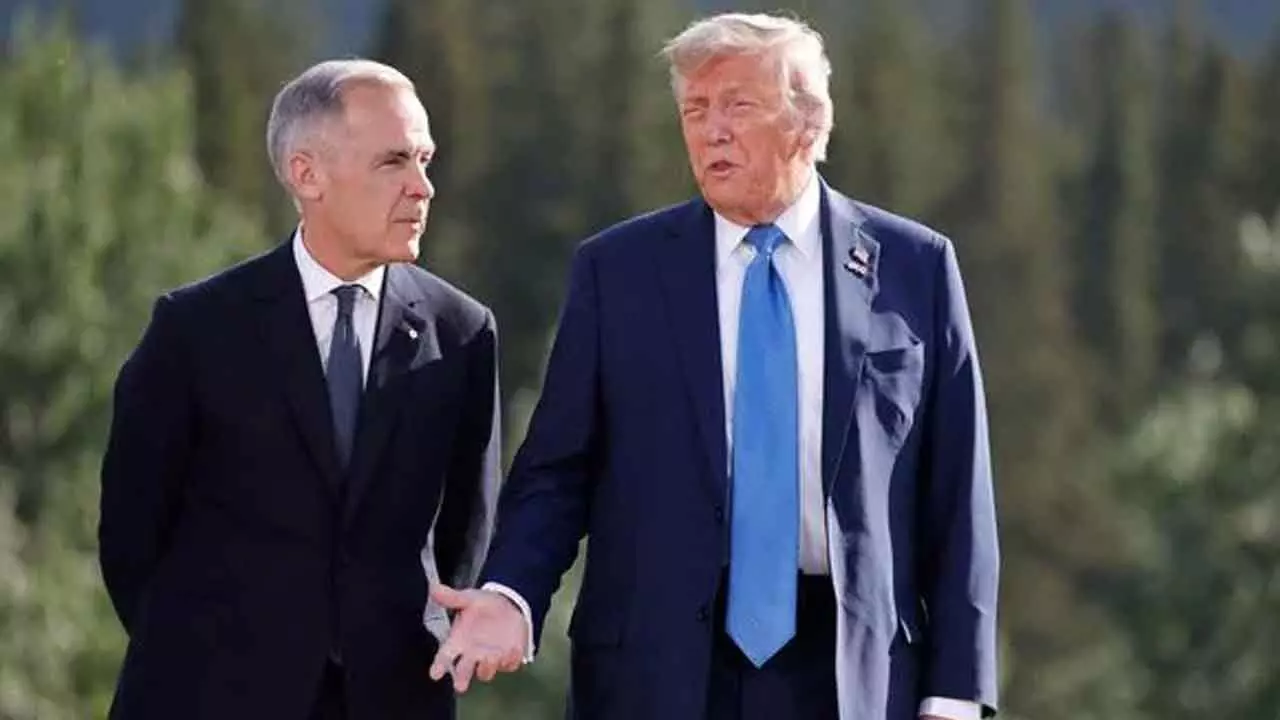Canada Scraps Tech Tax, Resumes Crucial Trade Talks with US After Trump's Ultimatum
Discover how Canadian Prime Minister Mark Carney's decision to scrap the controversial digital services tax paved the way for the resumption of crucial trade talks with the U.S., defusing a potential economic standoff.
Canada Scraps Tech Tax, Resumes Crucial Trade Talks with US After Trump's Ultimatum

Canadian Prime Minister Mark Carney announced late Sunday a significant breakthrough: trade negotiations with the United States have officially resumed. This comes on the heels of Canada's decision to withdraw its contentious plan to impose a digital services tax on U.S. technology giants, a move that had threatened to derail bilateral economic relations.
The diplomatic thawing follows a tense period ignited by U.S. President Donald Trump. Last Friday, President Trump publicly declared a suspension of trade discussions with Canada, citing the proposed digital services tax as "a direct and blatant attack on our country."
In a crucial development, the Canadian government confirmed its intent to "rescind" the Digital Services Tax "in anticipation" of a new trade agreement. This levy, which was poised to take effect on Monday, had been a significant point of contention between the two North American allies.
A pivotal phone call on Sunday between Prime Minister Carney and President Trump proved instrumental. According to Carney's office, the leaders reached an agreement to reignite negotiations. "Today’s announcement will support a resumption of negotiations toward the July 21, 2025, timeline set out at this month’s G7 Leaders’ Summit in Kananaskis," Carney stated, signaling a renewed commitment to reaching a resolution.
The path to this agreement has been paved with prior diplomatic engagements. In May, Prime Minister Carney visited the White House, maintaining a cordial yet firm stance during discussions with President Trump. Subsequently, during the G7 summit held in Alberta, President Trump traveled to Canada, where both leaders collectively agreed to a 30-day deadline for resolving outstanding trade issues.
However, the fragile truce was tested last Friday when President Trump revealed via his social media platform that Canada had informed the U.S. of its intention to proceed with the digital services tax. This tax was designed to target both domestic and international companies generating revenue from Canadian online users.
The proposed 3% levy was set to significantly impact major U.S. firms such as Amazon, Google, Meta, Uber, and Airbnb, applying to their revenues derived from Canadian users. Compounding the issue, the tax's retroactive nature would have presented these companies with an estimated $2 billion bill, payable by the end of the month, creating considerable financial strain and legal uncertainty.
Beyond the digital tax, Canada and the U.S. have been grappling with a complex web of trade disputes, notably the steep tariffs President Trump imposed on goods from America’s northern neighbor. These include 50% tariffs on steel and aluminum, as well as 25% tariffs on autos. Additionally, a 10% tax on imports from most countries is in effect, with the potential for rates to escalate on July 9, following the expiration of a 90-day negotiating period set by the U.S. administration.
Adding another layer of complexity, Canada and Mexico face separate tariffs of up to 25%, implemented by President Trump under the guise of combating fentanyl smuggling. While some products remain protected under the 2020 U.S.-Mexico-Canada Agreement (USMCA), signed during Trump’s initial term, the broader tariff landscape continues to be a source of tension.

